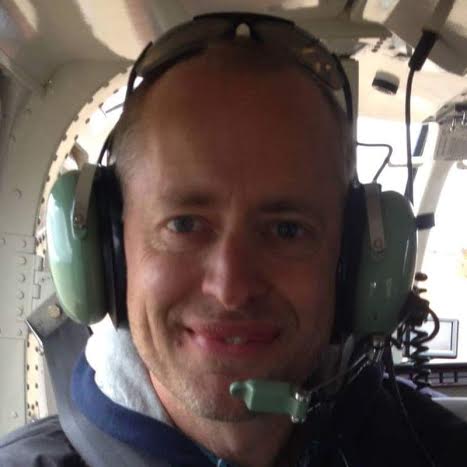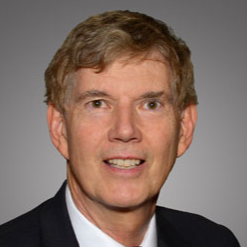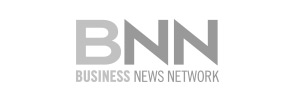Billionaire mine developer Robert Friedland has said that real wealth in the mining sector is created by finding something.
Friedland would know this, having driven 5+ world-class mining discoveries in his career. He knows that to find a mine you have to spend a lot of money, and drill a lot of holes.
Another secret weapon of Friedland’s is people; he surrounds himself with impressive technical minds, and provides them with big budgets and plenty of autonomy to test their theories. Statistically speaking, explorationists who have already found mines are more likely to make future discoveries.
I first met Dave Broughton on an Ivanhoe Mines field trip to South Africa and D.R. Congo last year. Friedland stood beside Broughton at the site of Ivanhoe’s world-class Kamoa copper discovery. There, a Broughton led team had chased an exploration concept from stream and soil anomalies to drill targets and eventually, a world-class discovery. Kamoa was the first major copper discovery in the D.R.Congo in a hundred years.
At the 2015 PDAC conference in Toronto, Dr. Broughton and Mr. Friedland received the Thayer Lindsley International Discovery Award for their work finding Kamoa. This was the second time the Ivanhoe group had won the prestigious award at mining’s largest convention.
Just a few hours before Dr. Broughton received the award, he met up with Exploration Insights editor Brent Cook, CEO.ca cameraman Carter Smith and myself to talk a bit about his exploration methodology, as well as his plans for a next discovery.
David Broughton, Kaizen Discovery, Brent Cook, Exploration Insights, and Tommy Humphreys, CEO.ca discuss Kaizen’s Discovery Trail at the PDAC in Toronto, Mar 1, 2015:
Tommy Humphreys: I’m here with Dave Broughton who is the exploration boss at Kaizen Discovery as well as Ivanhoe Capital group, a very accomplished geologist, and my friend Brent Cook, editor of Exploration Insights. I wanted to introduce these guys because I think some of the work that Kaizen is doing is very fascinating and Brent hadn’t heard the story yet, and knows more than I do. To start off, what is the award that you’re receiving today and what brings you to PDAC?
Dave Broughton (DB): We are receiving, on behalf of a whole lot of people, the Thayer Lindsley Discovery Award, which is given every year by the PDAC for a significant international discovery. It’s the second time Ivanhoe group has won this. They won it for OT [Oyu Tolgoi] at the inaugural event when they first awarded it a number of years ago.
Brent Cook (BC): So now you’re up in the Yukon for something different?
DB: Kaizen, late last year, picked up a package of land and took over a small company with an adjoining package of land up in the Western part of Nunavut, and its another stratiform copper play like the one we found at Kamoa [Ivanhoe Mines’ DR Congo copper discovery]. There’s copper everywhere you land, so there are good signs when you just get on the ground and wander around. That’s been appreciated for a long time, it was discovered initially in the 60’s and some work was done then, but really, nothing’s happened for about 20 years. The last group of people to be in there in a significant way on the play we’re really excited about was Cominco and that was in the early 90s.
There really are two plays, there’s a volcanic hosted copper play, that has a lot of very high grade copper, well known, lode copper, I guess you’d call it, in volcanic rocks, and there’s a more, less appreciated play, which is what we’re really excited about, and it’s in the sedimentary rocks overlying it. The rocks are similar in age to those in the copperbelt which is intriguing, and there’s mineralization that’s outcropping and in most places it’s covered, certainly 95% cover. 150 kilometre strike of these sedimentary rocks with copper showing here and there but it really hasn’t been tested.
BC: How many holes have been put into this?
DB: Well, Cominco put about a half a dozen holes at the far eastern end of the area and the rest is basically untouched.
BC: What did they find?
DB: They hit mineralization. They didn’t hit an ore grade intersection over ore grade widths, but there are lots of holes at Kamoa or Kupferschiefer, or anywhere you want to go in these systems, you don’t always hit ore on your first hole. The usual things right: persistent and all that.
BC: What sort of width and thickness are we talking in this horizon from the drilling you’ve got so far?
DB: You’ve got mineralization over metres in lenses and so on. There is some government geophysical data that gives up some idea as to what the big structures might be that might help control mineralization. We have some old prospecting that we know about. It’s really going to be getting on the ground and walking those contacts and making up our own mind of where we can find mineralization. And then we’re looking at doing a series of widely spaced stratigraphic holes, just like you would in other districts. You’ve really got to step back. These things go for kilometres, Kamoa is 50 square kilometres in area, so you really have to look at it at a base of scale and then narrow in on what you find. We’re going to take a big-scaled approach to start with and test as much of the strike length as we can, I think.
BC: What’s the access like?
DB: The access is actually excellent. We’re just south of the old town of Coppermine.
BC: Ah, the old famous Coppermine?
DB: It’s a short helicopter ride from there to the project. There’s an airstrip, regular air service. There’s an old air strip actually on one of the properties we’re going to use for direct access with a fixed wing aircraft, so it doesn’t get much better in that sense.
BC: Conceptually, what do you need to see, what do you need to find there to take it to the Kamoa stage, or up to a stage where it’s a world class deposit or something that’s really profitable.
DB: Like anywhere, you want to drill a discovery hole that’s got an ore grade and width and then you want to step out from that and build tonnes. That’s what it’s all about.
BC: What grade do you need?
DB: Up there, good question. Kamoa’s average grade is close to 3%, there are other deposits around the world that have that. If you get 3% copper of sufficient width, you’re in business.
BC: So that’s how we can judge your program. Although admittedly the first round is basic geology which I think is really smart. Get a handle on what’s going on and then zero in. If we’re going to watch this play, it’s about, first off, we get the concept, it’s coming together or it’s not coming together, here’s our targets, next round or two rounds after that, we’re getting low cost mineable widths over 3+% copper, okay.
DB: That’s the objective but like anything, you find what you find, and you go with it. They are mining the Kupferschiefer at under 2%. It really depends on all sorts of other factors, I’m not going to be able to predict that.
BC: You’re not that good yet?
DB: Not that good yet, sorry.
BC: What sort of shape is the company in? How much cash do you have and what’s your market cap?
DB: We’re in good shape. We’ve got a unique strategic relationship with the Japanese trading houses, they fund a number of our exploration projects, and we’ve got a long history of relationships with them, going back to the Ivanhoe group as well. That’s kind of our key strategic difference that we’ve got. In addition, we’ve got a treasury and no debt so that helps too.
BC: They are funding by way of placements, or getting a piece of the project, or an offtake agreement, what’s their relationship?
DB: It varies project to project. We have projects in BC where they are funding the exploration directly. They are interested in the offtake in the long term for Japan; that’s really what’s driving them. And we’re interested in the metals that work for that reason.
BC: That was Kaizen. They are looking for stratiform copper in Nunavut. Actually pretty interesting concept. If they can pull together a large enough volume of rock at 3%, which is what they’re after, it sounds like the infrastructure is not too bad, that could be quite significant. They’ve got a good deal structured with a number of Japanese groups, so it’s worth watching for sure.
Discuss @ chat.ceo.ca
FORWARD-LOOKING STATEMENTS
Statements in this video and article that are forward-looking statements are subject to various risks and uncertainties concerning the specific factors disclosed here and elsewhere in Kaizen’s periodic filings with Canadian securities regulators. When used in this video and article, words such as “will, could, plan, estimate, expect, intend, may, potential, should,” and similar expressions, are forward-looking statements. Information provided in this document is necessarily summarized and may not contain all available material information.
Although Kaizen has attempted to identify important factors that could cause actual results, performance or achievements to differ materially from those contained in the forward-looking statements, there can be other factors that cause results, performance or achievements not to be as anticipated, estimated or intended. There can be no assurance that such information will prove to be accurate or that management’s expectations or estimates of future developments, circumstances or results will materialize. As a result of these risks and uncertainties, the results or events predicted in these forward-looking statements may differ materially from actual results or events.
Accordingly, readers should not place undue reliance on forward-looking statements. The forward-looking statements in this news release are made as of the date of this release. Kaizen disclaims any intention or obligation to update or revise such information, except as required by applicable law, and Kaizen does not assume any liability for disclosure relating to any other company mentioned herein.
Disclosure: Author is a small shareholder in both Ivanhoe Mines and Kaizen Discovery. This is not investment advice. Consult a professional investment advisor prior to making any investment decision.
Photo credit: Ivanhoe Mines
 James Kwantes is the editor of Resource Opportunities, a subscriber supported junior mining investment publication. Mr. Kwantes has two decades of journalism experience and was the mining reporter at the Vancouver Sun. Twitter:
James Kwantes is the editor of Resource Opportunities, a subscriber supported junior mining investment publication. Mr. Kwantes has two decades of journalism experience and was the mining reporter at the Vancouver Sun. Twitter:  Resource Opportunities (R.O.) is an investment newsletter founded by geologist Lawrence Roulston in 1998. The publication focuses on identifying early stage mining and energy companies with the potential for outsized returns, and the R.O. team has identified over 30 companies that went on to increase in value by at least 500%. Professional investors, corporate managers, brokers and retail investors subscribe to R.O. and receive a minimum of 20 issues per year. Twitter:
Resource Opportunities (R.O.) is an investment newsletter founded by geologist Lawrence Roulston in 1998. The publication focuses on identifying early stage mining and energy companies with the potential for outsized returns, and the R.O. team has identified over 30 companies that went on to increase in value by at least 500%. Professional investors, corporate managers, brokers and retail investors subscribe to R.O. and receive a minimum of 20 issues per year. Twitter: 
